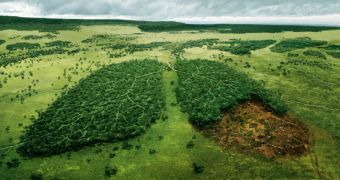In a paper published in a recent issue of the journal Science, a team of researchers argues that, according to evidence at hand, the expansion of human communities and agricultural lands are not the only things threatening the world's remaining forests.
On the contrary, they say that drug trafficking also constitutes a major threat to regions that accommodate forests and other natural ecosystems.
In their paper, the researchers detail that, as part of their investigation into how drug trafficking influences deforestation rates, they focused on rainforests in Central America.
They found that, for the time being, drug traffickers are a threat to natural ecosystems in remote areas in Honduras, Guatemala, Nicaragua, and other countries in the area.
More precisely, they discovered that, between the years 2007 and 2011, deforestation rates quadrupled in Honduras. Interestingly enough, this time frame coincided with an increase in the rate of cocaine trafficking in the country.
“Starting about 2007, we started seeing rates of deforestation there that we had never seen before. When we asked the local people the reason, they would tell us: ‘los narcos’ (drug traffickers),” explains study lead author Kendra McSweeney.
The researchers say that, all things considered, drug traffickers contribute to deforestation both by cutting down forests in order to set clandestine landing strips and roads in place, and by taking a sudden interest in agribusinesses in order to be able to lauder the drug money they make.
“In response to the crackdown in Mexico, drug traffickers began moving south into Central America around 2007 to find new routes through remote areas to move their drugs from South America and get them to the United States,” Kendra McSweeney says.
“When drug traffickers moved in, they brought ecological devastation with them,” the researcher goes on to stress, as cited by Newswise.
In light of these findings, the researchers who worked on this report argue that, by reforming drug policies currently in place, it might be possible to keep highly biodiverse regions in Central America safe from traffickers.

 14 DAY TRIAL //
14 DAY TRIAL //